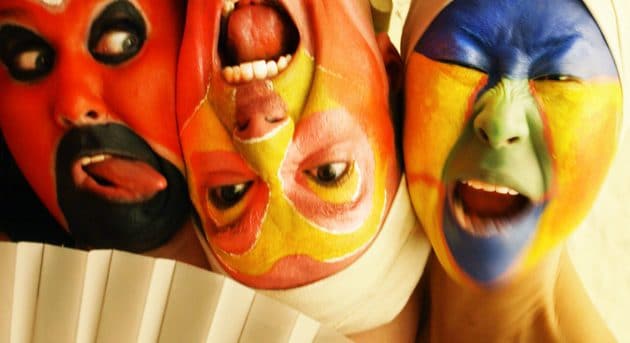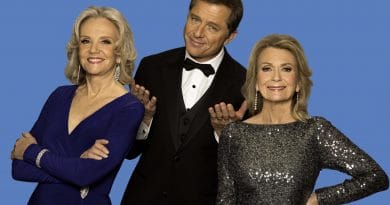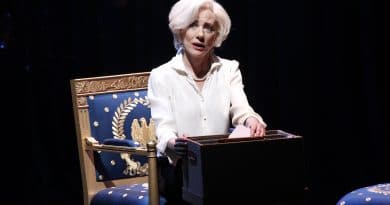Like Me: Immerse yourself in a topsy-turvy world
In Like Me, Mongrel Mouth’s new immersive theatre production, a treatment centre has fallen into the hands of former patients. If that’s not topsy-turvy enough, the production further shakes up traditional expectations.
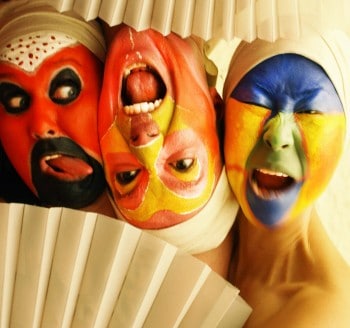
Instead of sitting quietly in your designated seat in a darkened auditorium, the audience roams within eight rooms of Merchant House (built in 1848). “The actor is right next to you, talking to you, or you’re talking to the actor, or they’re running away from you and you’re trying to follow them,” says director Duncan Maurice.
The audience even has opportunities to influence the way the story plays out. “What we’re aiming to achieve is for the audience to actually control the narrative at some point,” says Maurice.
The company’s two previous productions, The Silence Came and The Age of Entitlement, contained just such incidents. “In the last show, we had incredible moments where someone actually ran up and stole one of the big glittery sparkly red guns, and broke it over their knee,” Maurice says.
“Another night, there was a moment where the audience had to decide, basically, whether a character lived or died. Someone in the audience gently started singing ‘Give Peace a Chance’ and the whole audience joined in. It’s those moments where the audience have taken over, really, that make me think we’re doing our job properly.”
Like Me explores the theme of narcissism in the computer age. Says Maurice: “We’re in love with the computer and social media, but why? And how are we presenting ourselves? So this idea of narcissism became very strong.”
Created by a team of five writers, this focus emerged after rigorous discussions, starting with the questions: “What do you care about? What are you angry about?”
Intertwined issues of technology, consumerism and unhealthy self-absorption emerged but, Maurice says, the challenge was to find engaging and “human” ways to explore the theme.
“The idea of an addiction to technology and to narcissism is so real to most of us in 2015 that we needed a vehicle through which to explore it that wasn’t tyrannical or finger-pointing, and something that was fun,” he explains.
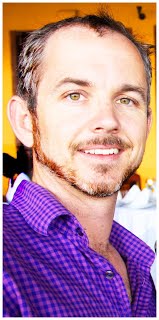
That’s where bouffon comes in, a clowning, mocking, slightly dangerous approach to performance that was defined by Jacques LeCoq during the 1960s. “Bouffon is ridiculous. Anything goes. It is all-knowing but also completely naïve,” says Maurice. “We have created this funny, mad little world and scenario. It is silly, and that’s fun to make as well as it is to see.”
He points out that the company’s first work was full of suspense, and the second was a drama. When it came to the third production, they were ready for something different: “we wanted to have some fun. We wanted to have a bit of a laugh.”
Exaggerated, stylized costumes and original music contribute to the audience’s sense of entering a different world. Most of the actors from the previous productions again enter the “terrifying” performance environment that removes traditional theatre’s level of predictability—when actors “know that their prop will be on that table, and that person will pass them at that time”, says Maurice.
The director became interested in bouffon when, as a teenager, he encountered actor Russell Dykstra who had recently returned from studying with LeCoq. More recently he has worked with bouffon artist Paul Bourke.
However, as he now realizes, “I had in fact been seeing it my whole life in the rodeo clowns.”
Maurice, it turns out, has strong connections with outback Queensland and its rodeos and campdrafts. His father has been the announcer for the Gold Cup national campdraft competition at the Warwick Rodeo and Maurice describes childhood memories of “growing up in the announcer’s stand above the [rodeo] chutes.”
Years afterwards, his late Grandmother showed him a suitcase full of old photographs and he learned about a great uncle had been a rodeo clown, as well as other connections to the world of shows, circuses and carnivals.
“This work is probably the closest I’ve come to re-imagining my connection with that part of my history,” Maurice says. “It was definitely my introduction to the theatre, absolutely.”
He even sees parallels between immersive theatre and the experience of rodeos and carnivals.
“Although there is the main event at a carnival, there are also people warming up, there is the sideshow, there is the Ferris wheel,” he says. “No one is in control of your experience—you go wherever you want, whenever you want. We’ve brought that into immersive theatre, and that’s definitely because that’s the type of art and theatre that I experienced.”
But, he says, there are other, more practical, reasons behind choosing to work in immersive theatre.
“I wanted to make work that was modern and contemporary even though it goes back to Shakespeare’s Globe Theatre, or to the times when people would chat and eat at the opera,” he says. “I wanted to make work that reflected how I think we engage with entertainment now. The internet has changed our attention span. You do just hyperlink off whenever you want to, and I think audiences are responding to that.”
At the same time, he says, people in our technology-dominated environment crave “humanness”, which is “so core to a sense of ritual and culture”.
Mongrel Mouth productions have immediacy and unpredictability, tapping into that craving for human interaction. The shows are based on “a definite plan … a structure” but, says Maurice, “there are lots of different ways things can go. Every time we get to our first performance, the audience throws us something that we didn’t imagine.”
Previous productions have revealed to Mongrel Mouth personnel just how willing audiences are to engage with the action. “We didn’t realize just how much fun people want to have, just how much they want to suspend their disbelief,” says Maurice.
He adds that no one need fear they will be forced to participate. “If you just want to watch, you have every bit of a place at a Mongrel Mouth show as someone who wants to heckle,” he says. “I think we’ve finessed that, the actors have finessed reading the situation.”
Maurice notes how the title can be understood in multiple ways—appropriate for a topsy-turvy world where accepted meanings are undermined. Like Me can mean “Do you like me? What can I do to make you like me?”
But equally it can suggest: “I am like you. I am similar.”
So which is the correct meaning?
Ah, says Maurice, “it’s really up for grabs.”
Like Me
Merchants House, 43-45 George Street, The Rocks
Thursday June 18-Saturday July 11 2015
Previews: Thursday June 18, Friday June 19
For more information and bookings, go to www.mongrelmouth.com.

